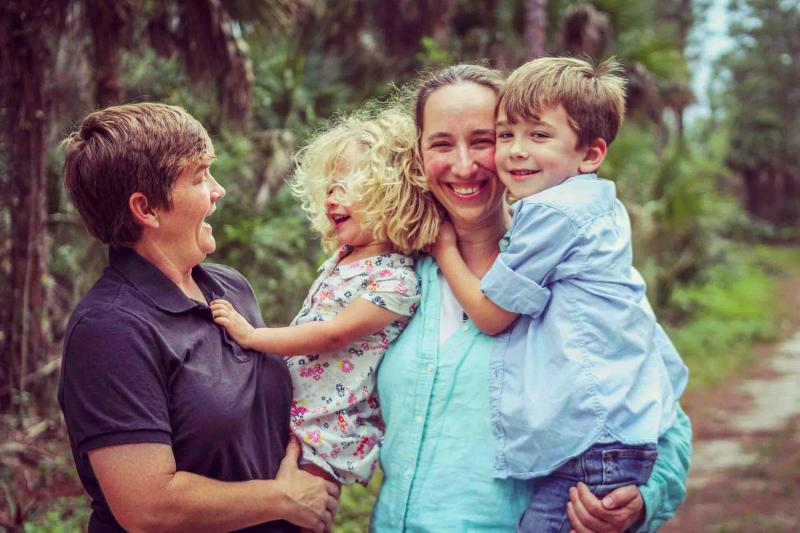Remember the simple childhood joy of the long summer holidays at the end of the school year?
Seemingly endless free time to play with friends, explore nature, enjoy family holidays or daydream under a blue sky. When the summer break finally came to an end, and it was time to shine the school shoes, there’d be a feeling of sadness and even sometimes a sense of trepidation about the year ahead.
Sometimes it helps to recall our own childhood memories when preparing our children for the back-to-school routine.
Depending on his or her personality, your child could be experiencing all sorts of feelings in relation to the start of a new school year.
Will I like my new teacher? What if I don’t make friends in my new class? What if the work is too hard in Year 4? It’s common for children to feel anxious about these things at the start of a new school year.
Even when children are happy about returning to the school routine and catching up with friends after the long break, they might feel initial tiredness and frustration about getting back to the regular school and extra-curricular routine.
Thankfully, there are a few things parents and carers can do to make the transition from holiday to term one, a little easier.
 After weeks of unscheduled time, it can be tricky for children to adjust to the idea of setting an alarm clock and getting into the busy before-school routine. Although it’s not easy to wrestle kids away from digital devices, it helps to re-establish an early bedtime routine in the days before school starts, to get them used to going to bed at a reasonable hour and waking up fresh to take on the school day. Make a pact with children that if they go to bed early, they can have extra time to play games in the morning until school starts again. Involve them in the back-to-school preparation of laying out the books and uniforms and the new backpack and lunchbox so that they feel a sense of pride in being responsible for their daily routine.
After weeks of unscheduled time, it can be tricky for children to adjust to the idea of setting an alarm clock and getting into the busy before-school routine. Although it’s not easy to wrestle kids away from digital devices, it helps to re-establish an early bedtime routine in the days before school starts, to get them used to going to bed at a reasonable hour and waking up fresh to take on the school day. Make a pact with children that if they go to bed early, they can have extra time to play games in the morning until school starts again. Involve them in the back-to-school preparation of laying out the books and uniforms and the new backpack and lunchbox so that they feel a sense of pride in being responsible for their daily routine.
Whether your child is starting school for the first time or returning for a new school year, it can help to keep the conversation positive. Whilst acknowledging that it’s normal to feel a little anxious about going back to school, it helps to emphasise the great opportunities, friendships and new adventures your child will experience during the school year. Remind your children that learning can be fun and lead to a whole new world of opportunity. Younger children can relate to the playful words of Dr Seuss:
“The more you read, the more things you will know. The more that you learn, the more places you’ll go.” – Dr Seuss
Although its normal for kids to have some reluctance to return to schoolwork, be aware of anxiety signs that could indicate your child is concerned about something more than just post-holiday blues. Signs to be aware of include becoming withdrawn, an onset of stomach aches or headaches, or sudden mood swings. These signs can be easily missed – but could be pointers to your child being concerned with issues within their friendship group – such as struggling to fit in, being bullied, or other concerns.
Research shows that children who have a strong friendship circle have higher self-esteem, are more resilient and are less likely to be bullied. Parents can help by actively supporting their child’s friendships and encouraging them to respond calmly when managing conflict with their peers. Explain that there are always ups and downs in friendships and have a conversation about how their friend might be feeling. Offer some strategies for solving disagreements and follow up when they get home from school. Arranging a play date with your child’s friend or friends after school once the school term is underway, can give children something to look forward to and cement strong friendships that last the whole year through.
 4. Promote healthy eating
4. Promote healthy eatingMornings can be frantic, with parents juggling the work and school day, plus drop-offs at kindy and school, but allowing enough time for a nutritious breakfast helps put kids in the best frame of mind before the school bell rings. Packing a healthy lunch also goes a long way to helping your child stay happier throughout the day, concentrate on learning, and have the energy they need for study and play. While the school holidays may have been a time for treats, getting kids used to eating healthy snacks such as grapes, carrots and watermelon in the days before school starts, will help them make the link between nutritious food and a healthier mind and body.
School term can be busy, but just because the holidays are over, doesn’t mean we need to get stuck on a hamster wheel of back-to-back activities. Scheduling some family down time is important for both adults and kids! Amid busy schedules, the whole family can benefit from having things to look forward to, in order to break up the school-work-homework routine, such as a trip to the beach or going to the movies. Even setting aside time to play a game or read a bedtime story to younger children can provide valuable time for both parents and children to relax, unwind and be in the present moment.
Every school year has its ups and downs, but with a little preparation and positivity, you can help minimise the back-to-school blues and help make the transition from endless summer holidays to the classroom, a little less bumpy.